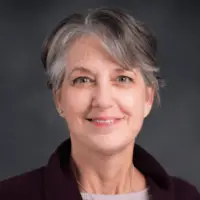RESEARCH TRIANGLE PARK, N.C. – Informing a child that a parent has been diagnosed with cancer is very difficult, and parents are not always well equipped for the conversation.
To make the conversation a little easier, researchers at RTI International collaborated with Washington University in St. Louis to develop an Internet tool that uses stories to help cancer patients learn how to tell their children about their diagnosis.
The new web tool is the only education material of this type that uses personal stories from cancer survivors and their children to reinforce educational information. The website, www.tellingkidsaboutcancer.com, shares first-hand accounts from families who’ve survived cancer, provides expert advice, and takes a hands-on approach to helping parents develop a personalized conversation guide they can use during their first discussion with their child.
“Research has shown that people remember educational information better when it is combined with personal stories than when they see or hear educational information on its own,” said Linda Squiers, Ph.D., senior health communication scientist at RTI and the project’s director. “By listening to the experiences of others, parents can learn how to prepare for that first conversation, which focuses on sharing their cancer diagnosis with their children.”
The web-tool helps parents prepare by asking them to think about where and when to have the conversation and providing them with possible answers for their children’s tough questions such as, “Are you going to die? Who will take care of me if you can’t? Why did you get cancer? Will I get cancer?”
In each section of the website, there are stories from parents and their children about what it was like to have that initial conversation about the cancer diagnosis. Parents can listen to other parents talk about how they shared the news of their illness with their children — and how their children reacted. The stories were gathered through the StoryCorps program (http://storycorps.org) for the website.
“Telling kids about cancer is one of the most difficult conversations a parent can have,” Squiers said. “Most newly diagnosed cancer patients tell their children very soon after they are diagnosed and often do not think through the specific words or communication strategies they want to use during the conversation to help their children understand and cope with the news.”
On the website, parents can build their own personalized conversation guide that they can print out and reference during the conversation or use to rehearse the key points they want to share with their child.
“Children learn how to cope with the diagnosis by watching their parent,” Squiers said “This first conversation allows parents to model for their children how to deal with a serious illness and also lays the foundation for how cancer will be dealt with and discussed within the family.”
To develop the educational content, the authors reviewed research on family communication about cancer as well as children’s information needs and emotional responses to a parent’s cancer diagnosis.
“As a parent, it’s normal to want to protect your child from bad news,” said Suzanne Dolina, one of the website creators from RTI. “At first, you might think it’s better not to share the news that you have cancer with your child. But research studies have shown that keeping your illness a secret will be difficult — and it may not be best for your child.”
The web tool also includes tips for age-appropriate conversations and a list of resources and helpful links.
The website was designed by CommunicateHealth and the project received funding and conceptual support Washington University in St. Louis’ Health Communication Research Laboratory and RTI International.
- Researchers at RTI and Washington University developed tool to help cancer patients tell their children about the diagnosis
- Web tool is the only education material of this type that uses personal stories from cancer survivors and their children to reinforce educational information
- The website shares first-hand accounts from families who’ve survived cancer and provides expert advice
- The site takes a hands-on approach to helping parents develop a personalized conversation guide they can use during their first discussion with their child
RTI International Media Relations:
